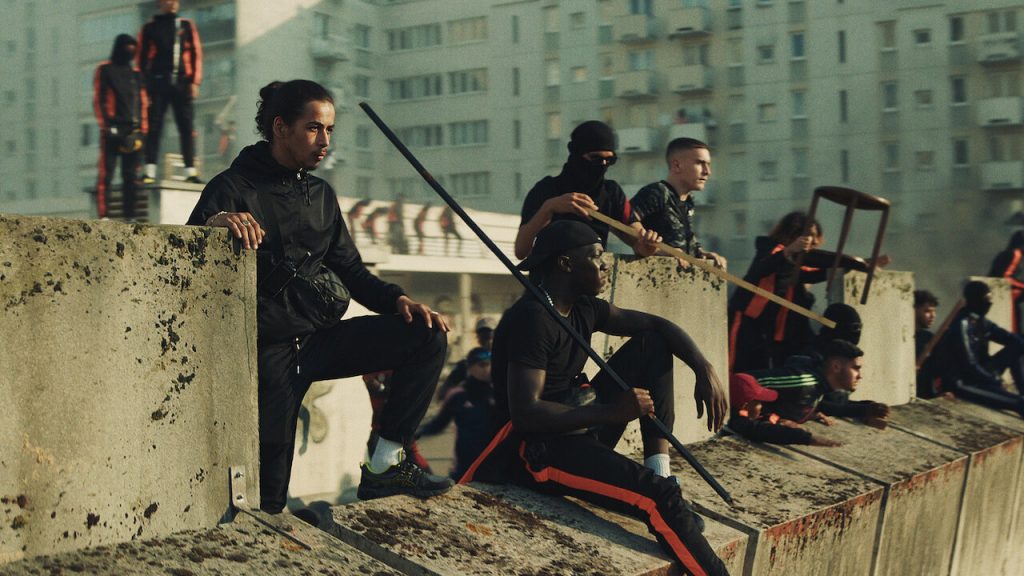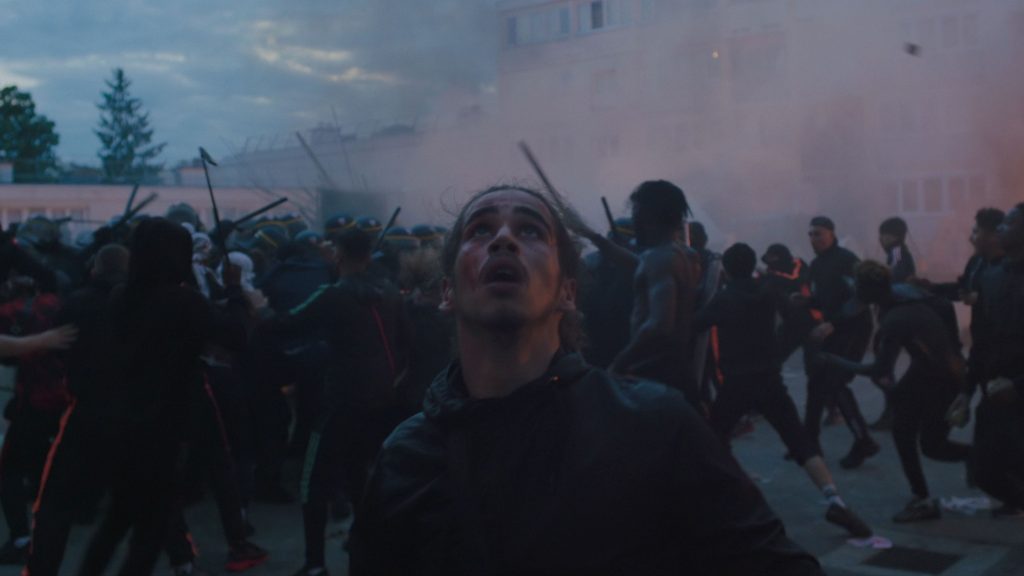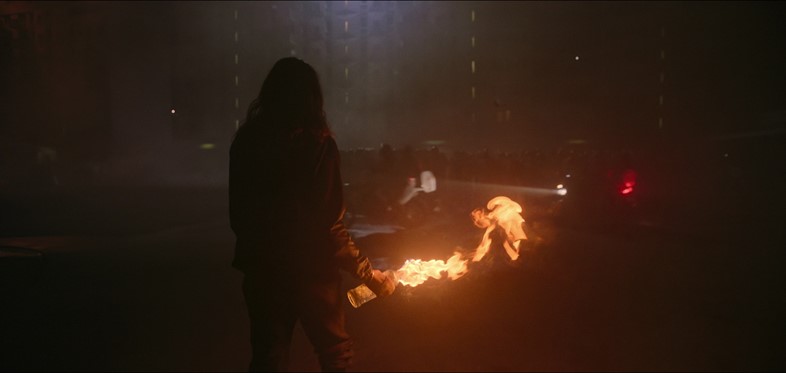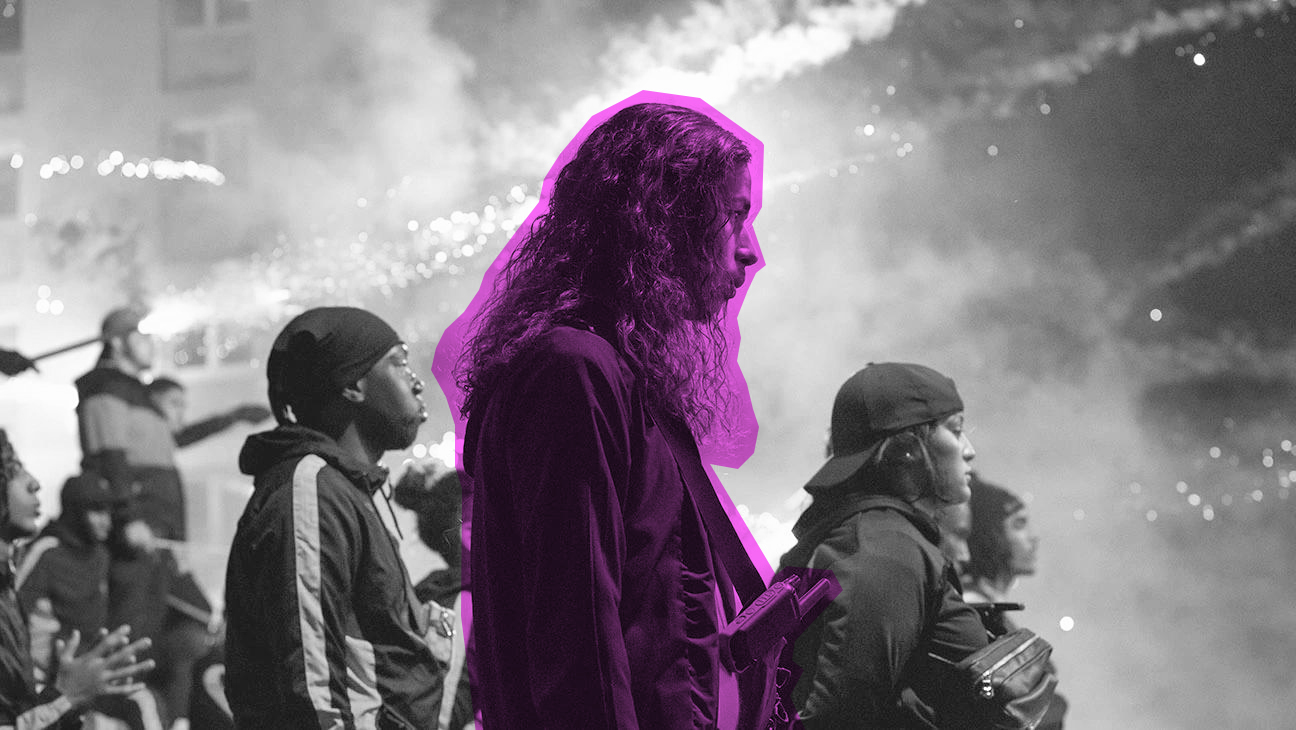THERE WILL BE SPOILERS.
Athena (2022), Romain Gavras’ newest film, has divided audiences and critics alike since its premiere at Venice earlier this year.
While its camera work has been universally lauded, interpretations as to the movie’s political message have varied wildly – where does Gavras really stand?
The film takes as its starting point the lynching of 13-year old Idir by police officers that starts a riot in a French banlieu. The boy is survived by three older brothers, Abdel, Moktar, and Karim.
Director Romain Gavras has stated that his idea for the story was to set it up as a Greek tragedy, and thus, each brother has a different reaction to Idir’s death that becomes in itself a modern archetype, a modern myth.

Abdel (Dali Benssalah) is a soldier in the French army, fully integrated into mainstream society. Moktar (Ouassini Embarek), on the other hand, is a petty drug dealer who cares little about anything other than his business.
Lastly, Karim (a very charismatic Sami Slimane) seems to be the one that has been dealt the hardest blow by his sibling’s murder, and decides to take justice into his hands, demanding that the police officers responsible be identified.

It is soon hinted at that the actual culprits are not policemen, but far-right agents hoping to create mayhem. The last scene of the movie will confirm that this is actually the case, but what does it all mean?
The violence started by Karim as a way of attaining some sort of restitution for Idir’s death tells us that he has lost faith in the very same public institutions that should help and protect him.
When he hears that the media are blaming far-right extremists for his brother’s death, Karim dismisses it as a blatant lie. After all, police brutality is a commonplace occurence in the banlieu.

If Karim had had a different experience, if public institutions had not failed him, he would have believed the reports – and therein lies the tragedy.
Athena does not whitewash the violence we see on screen on either side. Police officers are shown abusing their power during the raid, and we are privy to the reluctance by many banlieu residents to comply with Karim’s orders.
Gavras makes a clear statement about how society’s shortcomings towards the dispossessed are fertile ground for extremists with their own agenda to exploit.
The banlieu’s violent eruption is only possible precisely because issues such as police brutality are a very real and a very pressing issue. A situation such as the one we see in Athena only feels so frightening because the groundwork for it has already been established.
All images belong to their respective owners.

